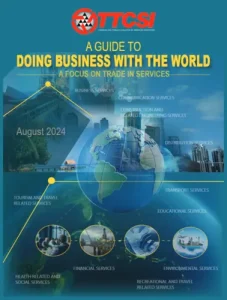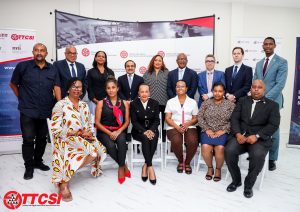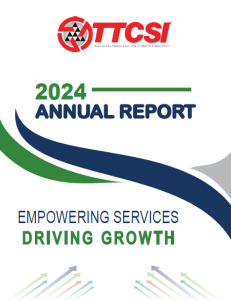The Trinidad & Tobago Coalition of Services Industries (TTCSI) launched its Tertiary Education Export Steering Committee and an Education Export Stakeholders Workshop at the Normandie Hotel, Port-of-Spain. The committee, which comprises representatives from public and private tertiary institutions, was established to develop the export capacity of the education sector and brand T&T as a destination for higher education. This initiative stemmed from a National Draft Export Strategy spearheaded by TTCSI and funded by the Commonwealth Secretariat. Arising out of the study and extensive consultations, four sub-sectors were identified—medical tourism, professional, yachting and educational services—as having high short to medium term export potential.
TTCSI’s chief executive officer Nirad Tewarie said: “Of the four sub-sectors, educational services emerged as having the most potential in the short to medium term, particularly as it relates to English Language learning, given T&T’s proximity to Latin America.”
He said while there is significant room for improvement in the education system locally, the report underlines that the relative strength of tertiary level institutions and opportunities they can capitalise on. The report said T&T could benefit from strategically marketing its educational services to foreign students, Tewarie said. “T&T could earn between US$5,000 to US$$15,000 per student. The potential and capacity lie in the areas of higher education, English Language training, technical and vocational education. After three years of strategic activity, each category could attract an additional 2,500 students per year. “However taking into consideration tuition fees, food, entertainment and personal services, the estimated annual economic contribution of these additional students is US$62.5 million, thus increasing the total exports of commercial services by seven per cent.” Tewarie said the importance of the services sector is tremendous, as it contributed 51 per cent of GDP and 86 per cent of employment in 2012. He said despite its importance, it plays a marginal role in the generation of foreign exchange and services accounted for only seven per cent of export earnings in 2010.
Markets identified in the draft strategy include the African Continent—Zimbabwe, Kenya, Nigeria and Cameroon, for English language training, Brazil, China and Costa Rica and for technical and vocational education, mainly the region. Tertiary Education and Skills Training Minister Fazal Karim said he is committed to working collaboratively with the TTCSI on the initiative and an official of his ministry will serve on the steering committee. The minister applauded TTCSI for taking the initiative which he said is one of the steps in branding T&T as the education capital. He said his ministry is also working on several initiatives that would assist in this regard, including the NESC Drilling Academy, which was launched last November last year and already has 150 students.
“I have also asked the NESC with the University of Trinidad & Tobago to start looking to launch, before the end of the year, a gas academy,” he said.
Karim is also hoping to launch an aviation institute before the end of 2014. Members of the steering committee are: Dr Robin Maraj, executive director, School of Business & Computer Science; Susan Langdon, managing director, Langdon’s Language Institute; Francis Bertrand, consultant, Langdon’s Language Institute; Cheryle Dubay-Tewarie, University of the West Indies; Florence Louis-Edouard, senior manager, International Office & Grant Funding, University of Trinidad & Tobago; Lance Dowrich, training director, Kenson, TTCSI.





